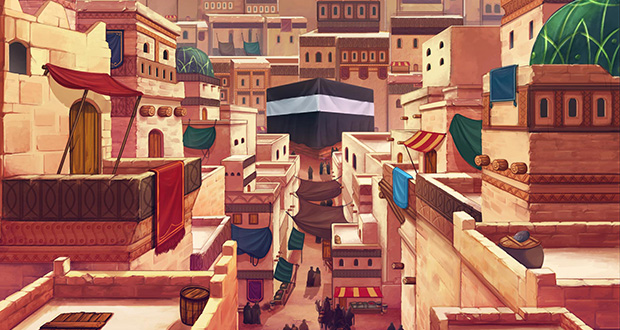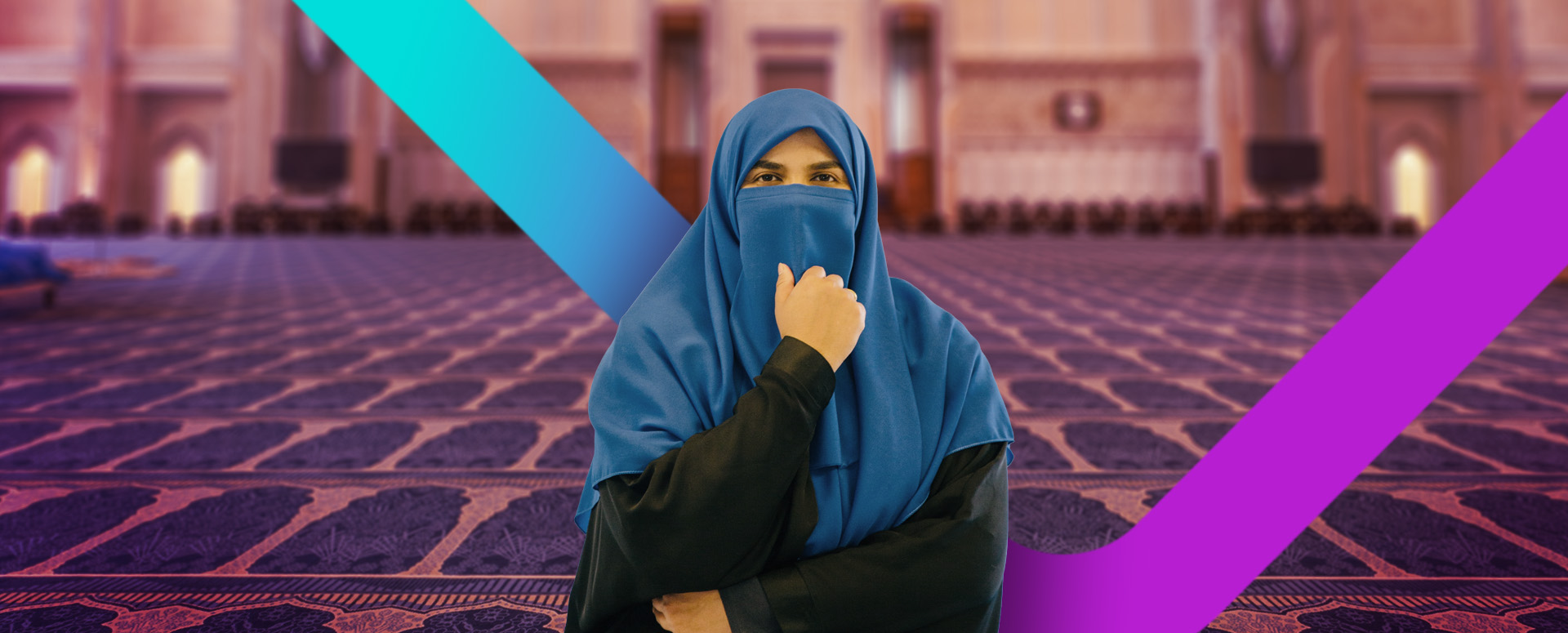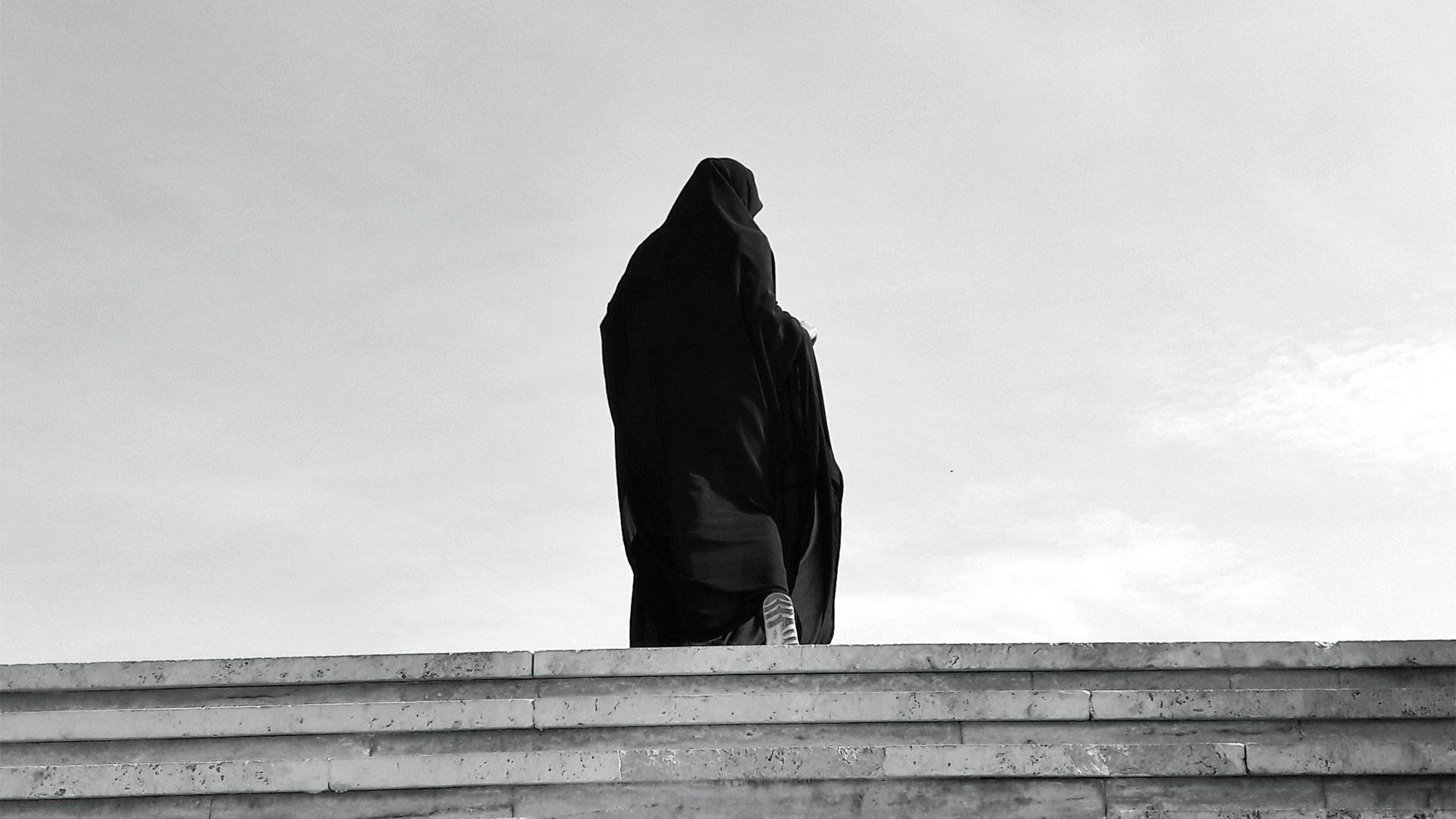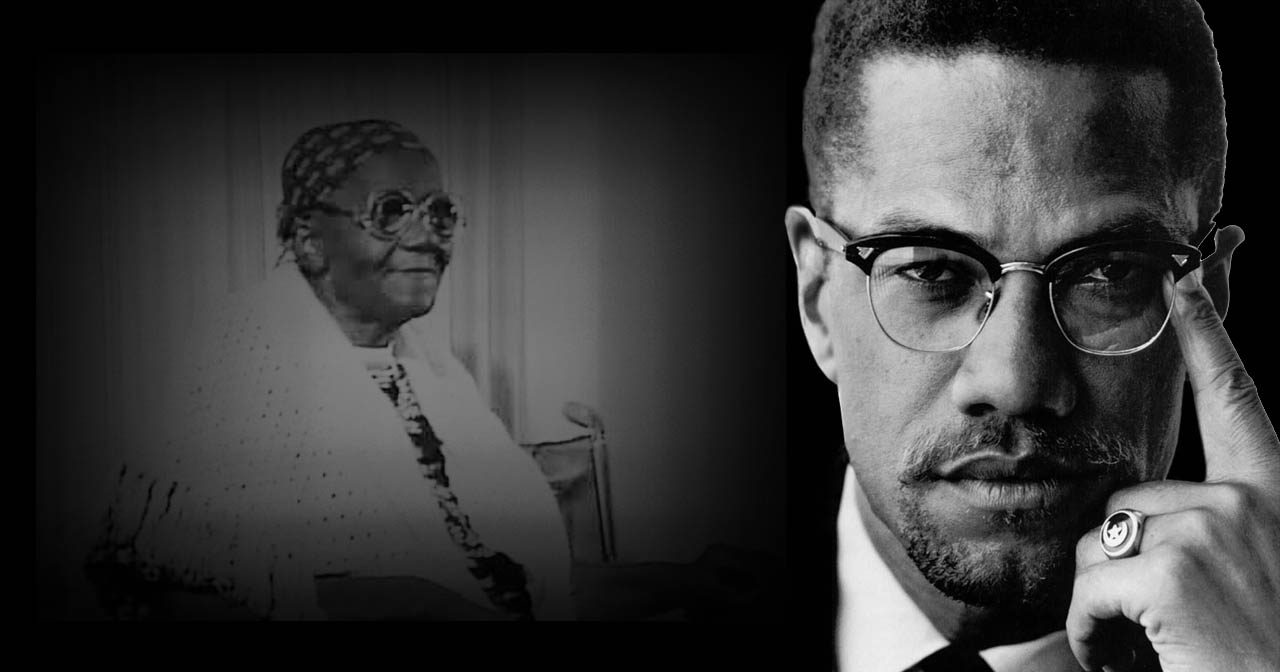
Powerful Lessons from the Life of Khadījah (r.a.)
10 min. read
Written by:
Fatima Barkatulla
Date:
6th March 2018
What made Khadījah r.a. (radhiyallahu anhaa – ‘Allah be pleased with her’) great?
She was declared by the Prophet ﷺ to be of the greatest women of all time and given glad tidings of a house in Jannah, making her an exemplar of īmān.[1] She is often mentioned in our times as an icon of female empowerment, who knew what she wanted (to marry the Prophet Muḥammad ﷺ) and wanted it now! Failing that, she is identified as a successful CEO, her story misappropriated to fit a capitalist, materialist worldview, where economic worth is the only one worthy of mention. In one BBC radio programme I participated in, it was implied that if more Muslim women were empowered to be more like her the Muslim world would be a much better place![1] It is true, the world would be a better place, but — as any Muslim who has understood Khadījah’s biography knows — not for the clichéd reasons popularly given. What made her great and what Allāh and His Messenger ﷺ praised her for, transcended all of that.
Recently, I was blessed with the opportunity to write the book ‘Khadijah – Mother of History’s Greatest Nation’ published by Learning Roots.[2] During the intense couple of years I spent poring over the life of our mother Khadījah (r.a.) and aḥadīth related about her I feel I got to know her. In the process of bringing her story to life, there were five timeless life-lessons that particularly stood out for me as being the most impactful ones that 21st century Muslims could really benefit from.
Lesson 1: Live for a vision beyond your own life.
It is striking that Khadījah (r.a.) passed away during what was the most trying and difficult period for the Muslims. She never saw the relief of migration to Madīnah, the triumph of the Battle of Badr or the Conquest of Makkah. This was because she passed away before the Hijrah, just after the Muslims emerged from three painful years of suffering the boycott imposed upon them by the Mushrikīn, when they lived in tents in the narrow valley of Shi’b Abī Ṭālib. Khadījah (r.a.) , who was an upper class lady of high repute, had left the comforts of her usual lifestyle to stand by the Prophet ﷺ and live as an outcast refugee in the most difficult of circumstances.
She lived, strove, and patiently persevered as a Believer for a cause that would bear fruit after her death. She did not see Islām spread through Arabia and establish itself from as far as the Siberian Peninsula to the edges of the far-East. She never witnessed a world where a billion people are Muslims. And yet, here we are, sitting in the seat of the Western world, in London, and you, dear brother and sister, are part of Khadījah’s legacy!
With this in mind, we too must realise that we may not see the true results of what we build in our lifetimes, but build it we must. Living for a cause beyond our own lives, for a vision of this world that we may never get to see, and Allāh’s pleasure in the Hereafter, are what we need to stop living petty and small-minded existences. It causes our spirits to soar as we strive towards something greater. It reminds us that intention is more important than completion or results and that by having enormous intentions and then diligently working towards them, we secure reward from Allāh, even if we do not complete what we started. Furthermore, Allāh will see to it that our work continues beyond our lives.
Lesson 2: Seek your status with Allāh.
Khadījah (r.a.) was a woman from the nobility in a tribal society where lineage gave a person immense status. When she took the Prophet ﷺ that fateful day, to her cousin Waraqah b. Nawfal, she heard for the first time that her people would turn them out of Makkah one day. It was an unbelievable notion to the Prophet ﷺ and Khadījah who held celebrity-like statuses in their society. That day it would have dawned on her that standing by the Prophet’s ﷺ side meant tough times ahead. It meant losing the status she once enjoyed in her society. But it would also mean being of the highest status in Allāh’s eyes, because those who are pioneers in the way of Allāh are not equal to those who come afterwards. By being the first Believer, being from as-Sābiqūn al-Awwalūn who embraced Islām when it was neither popular nor easy to do so, she secured her status with Allāh.
Similarly those Muslims in the generation before us who established Islām here in the UK, who visibly and openly practised Islām, facing the racism and taunts of that era, were pioneers who built institutions and infrastructure for our communities. They will have been blessed with a higher status than those who came later and benefitted from the relative ease of being a second generation practising Muslim in the UK. I remember a time in London when I’d walk down the street with my mum; she was the only woman observing hijāb that we knew and I expected every other person who walked past us to shout “Paki” or hurl some other abuse in our direction. Today, hijāb is normal. It would not be were it not for those early women, like my mum, who stood firm upon their principles. We are indebted to them and no doubt their stand has gained them a high status with Allāh, inshāAllāh.
Often people of our generation want to escape the difficulty of living as a minority in the West. We dream of living in the ideal Muslim land, where being a Believer comes easy. But, in our hope of reaching the greener grass on the other side, we may be missing the colossal opportunity for reward in practising Islām and engaging in Da’wah in the West. It’s true that it is tough going against the grain; it is hard resisting the Islamophobia and mistruths, but it is also true that the rewards will be great, inshāAllāh.
What, then, does our generation need to be brave enough to do, that may not be easy to establish now, but through our efforts, could pave the way for a better future?
Lesson 3: Patiently persevere in the face of ignorance
Even the most beloved Believers in history faced Islamophobia. Khadījah was the best of women and yet was subject to a campaign of persecution and abuse by her society. Her house had an unsheltered courtyard in the middle of it and the wife of Abū Lahab would have rocks, stones, filth and garbage thrown over Khadījah’s walls, into that courtyard. What was Khadījah doing during those moments when debris rained down over their heads? Perhaps she was preparing a meal? Perhaps sitting with her children doing the ordinary activities a mother does? How must she have felt during this terrible campaign of hate?
When Khadījah’s son passed away in infancy, the Mushrikīn in Makkah mocked her family and her husband and labelled them as ‘cut off’, alluding to the fact that they had no sons to carry on their family name. How would it feel to have society around you gleefully mock the death of your beloved child?
Khadījah’s life teaches us to patiently persevere through times of hardship and in the face of hateful ignorance. It teaches us that there may be tough times ahead, but that with commitment and by continuing to do our work, obeying Allāh, staying away from what He has forbidden, and asking ourselves: ‘what is Allāh asking of me now?’ the Believer will ultimately be successful because – wal-‘Aqibatu Lil-Muttaqīn – in the end, success is for the God-Conscious.[2]
Lesson 4: Be a Tool for Allāh’s Sake
One of the blessings of Khadījah was that she was a wealthy woman. But being a wealthy woman was not in itself her greatest trait. Her willingness to use her wealth and resources in the way of Allāh was one of her greatest traits.
This is something that the Prophet ﷺ would get very emotional about even after her death. He could never forget how readily she had believed in him and how selflessly she had put her resources at his disposal, to use as he saw fit for the sake of his mission. When he was questioned regarding her excellence, he affirmed her status in the highest terms and said:
She had faith in me when people rejected me. She believed in me when the people disbelieved me. She supported me with her wealth when the people prevented me, and Allāh blessed me with children through her and not through any other wife.[3]
Thus, she made herself a tool in Allāh’s cause.
We must develop and grow our resources, be they financial or human, in order to serve Allāh further. Each one of us has resources, be they material or otherwise: our wealth, our homes, our children, our time, our talents and skills, or our energy, that we can put forward and devote for the sake of Allāh.
What, then, are you prepared to give for Allāh?
Lesson 5: Be the backbone of your family.
Khadījah (r.a.) was a source of pure comfort for her husband, a sanctuary that he could retreat to and find strength in. For him to do the monumental work he was charged with, he needed Khadījah by his side, strengthening, reassuring, supporting, listening and being present to his needs.
She understood his need to go on the mountain and would deliver food to him there, to allow him to stay for as long as he needed to. She took care of his household during the toughest of times, giving him the freedom to do his work.
Who did the Prophet ﷺ share his innermost fears and questions with on the day when he was first spoken to by the Angel Jibrīl? Who did the Prophet ﷺ go home to when he had filth and the entrails of a camel thrown upon him as he prayed? Who did the Prophet ﷺ confide in at night when he returned from a day of tirelessly preaching his message and being mocked and ridiculed in response? By being that source of comfort, Khadījah (r.a.) found a special place in the heart of the Messenger of Allāh ﷺ and gained the love of her people, a place in history, a life that was impactful and most importantly, the pleasure of her Lord.
Every home needs a pillar of strength to steady it. It is true that both husband and wife have their part to play in showing love and support to each other. But the particular type of security that Khadījah (r.a.) provided was one that we as women in particular have the propensity and duty to establish, since the home is our key domain. It is to make our home a place of comfort for our spouses and children. Home should be the place of sanctuary, not the place from which our family members seek refuge! Joy, positivity and a calm environment can be generated by will. In fact, a negative environment and a toxic attitude can be turned around by a single individual with the tenacity and determination to bring the energy they wish to see into the environment around them. We need not reflect the negative energy we find around us. Through our connectedness with Allāh and nurture of our own mindset we can choose to generate the energy we wish to see in our homes and it will be contagious – and it will be worth it.
There are times when we carry burdens as women, and as mothers, that are incredibly difficult and demanding that we feel no one around us understands. Perhaps this is to draw us closer to Allāh. It is in times like these that we realise that only He understands us, only He is there for us, only He witnessed what we did. Be reassured that it did not go unnoticed by Him.
Creating a calm and comforting home for her husband was so significant that it was indirectly referenced by Allāh through the Angel Jibrīl (peace be upon him) in the glad tidings he gave her. When he said to the Prophet ﷺ,
O Messenger of Allāh, Khadījah is just coming with a bowl of soup for you. When she comes to you, give her greetings of peace from her Lord and from me, and give her the good news of a palace of jewels in Jannah, where there will be neither any noise nor any tiredness.[4]
So, dear brothers and sisters, what will our spouses, our children, our families, remember about us after we die? What will they say about the energy we exuded and brought into our homes? There is no way we can strengthen our communities without building strong, stable families as a priority.
I believe that these five timeless lessons constitute philosophies for a life well-lived, just as Khadījah’s (r.a.) life was. By striving to actualise them, we too will be able to weather the storms that may lie ahead, inshāAllāh.
Intrigued?
If you found this article helpful and think others could benefit, please share it. If you’d like to know more, don’t hesitate to reach out to us.
Get in touch

